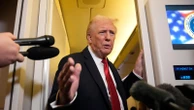China has continued to dominate the electric vehicle and battery minerals markets. The country’s international market share is thanks to an early start at comprehensive policies aimed at every single critical mineral supply chain. That translated into streamlined manufacturing of and refinery capacity for such minerals and downstream applications like batteries. As a result, China has positioned itself to be a global leader in this critical sector at a time when the entire world is shifting towards renewable energy dependent on battery storage and the electrification of the transportation industry.
This not only set up China as a technological leader in the global transition, but also ensured the country would benefit from steady economic growth for the coming decades as the only power with integrated supply chains and large-scale manufacturing ability capable of handling demand. In recent years, China has been responsible for producing and processing about 60% of global rare earth extraction, with experts pointing out that China controls as much as 80% of global lithium processing and production as well. For major economies like the United States and Europe, this poses a major risk. Being dependent on any one nation for critical materials and products is not just a precarious position to be in from an economic standpoint, but it can also be a national security risk.
As Matt McFarland covered in a 2022 CNN Business article, China has a track record of leveraging its supply chains and export capacities to benefit itself. China could shut down the world’s electric vehicle transition for political reasons, and as of today, there’d be nothing we could do to stop that in the short term. This means that the urgent shift to a low-carbon economy and the trillions of dollars being poured into achieving it could all be held ransom by a single entity.
Vulnerability point
In 2020, Trump signed an executive order declaring a national emergency in the mining industry, aimed at boosting domestic production of rare earth minerals critical for military technologies while reducing the country’s dependence on China. Then in 2021 the Department of Defense classified battery materials as strategic interests, and later that year under the Biden-Harris administration, the Infrastructure Investment and Jobs Act, also known as the Bipartisan Infrastructure Law, was enacted with a key focus on developing jobs and supply chains needed to aid our transition to a low-carbon economy.
Since then, domestic markets made rapid progress, with Europe and Australia also working to identify gaps in their own productions. Since 2021, the policies implemented in the United States have catalyzed over $860 billion in investments within the green transport and energy sectors.
Bolstered by innovations within the private sector, as well as the support of major utilities and automotive companies such as Tesla leading the charge, and General Motors fully committing to the transition, there is momentum and interest building to rival China’s grasp on the market. Internationally, the White House has imposed tariffs on Chinese EVs and advanced batteries, with Europe considering similar measures. A combination of all the above has led to an overproduction of EVs in China and affected some aspects of its markets; this has slowed their progress down enough for the U.S. to be able to catch up.
U.S. seizes the opportunity
Whoever wins the White House this November, Trump or Harris, lithium and the battery supply chain will be near the top of the agenda. At the end of the day, it is all about jobs, jobs, jobs. With tens of billions of dollars already invested under the Biden administration, neither Trump nor Harris will leave mega factories or large-scale projects half built. Doing so would eliminate hundreds of thousands of jobs. To seize this opportunity to become a structural leader on climate change through technology, innovation, and production, we must be able to compete directly with China. This is an ultra-important issue for each ticket, and will require us to leverage competitive advantages in key technologies.
This funding will go a long way in putting domestic infrastructure and supply chains on track to compete with China, enabling major movers in those sectors to focus on implementations and upscaling, while smaller technology companies like EnergyX continue to develop homegrown solutions that can give the country a competitive advantage. EnergyX was founded in 2018 after identifying a bottleneck in lithium production that an increase in demand would have on a sector that was not properly equipped to handle it. Solutions like our proprietary LiTAS DLE platform of technologies provides sustainability and marked efficiency from brine to battery but cannot function within an industry that is itself not modernized.
The interest and investments we have seen in recent years are giving companies within this space the ability to grow. This is what will propel the United States back as a leader in clean tech.
Teague Egan is CEO of EnergyX







No comments